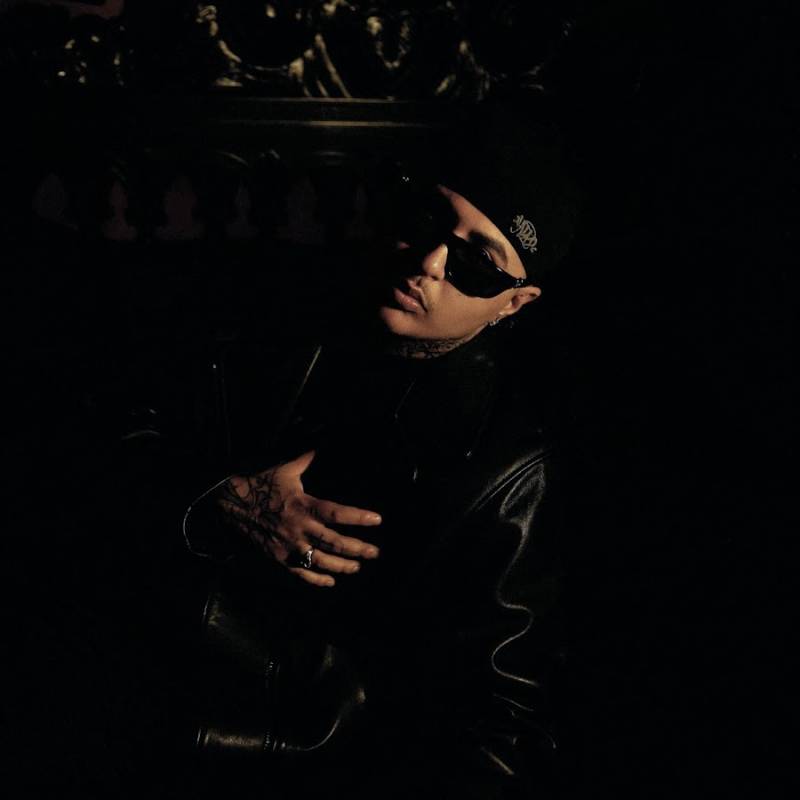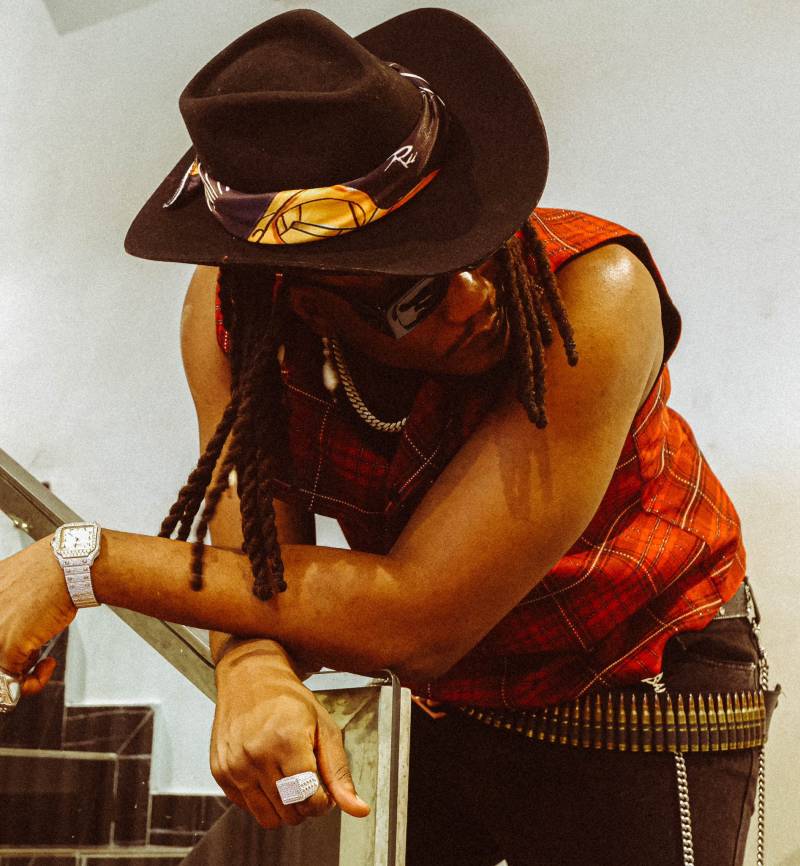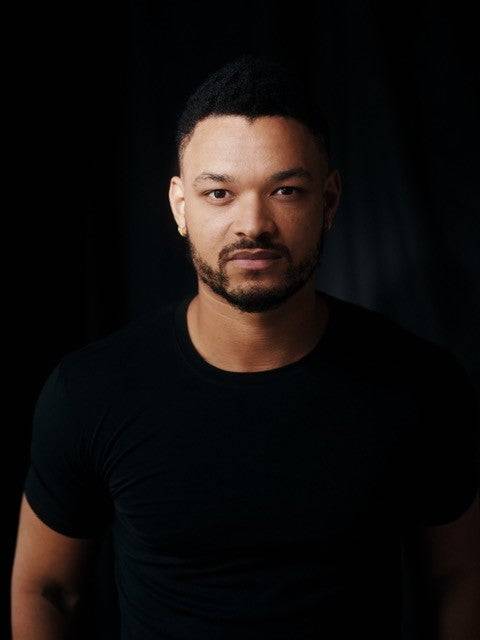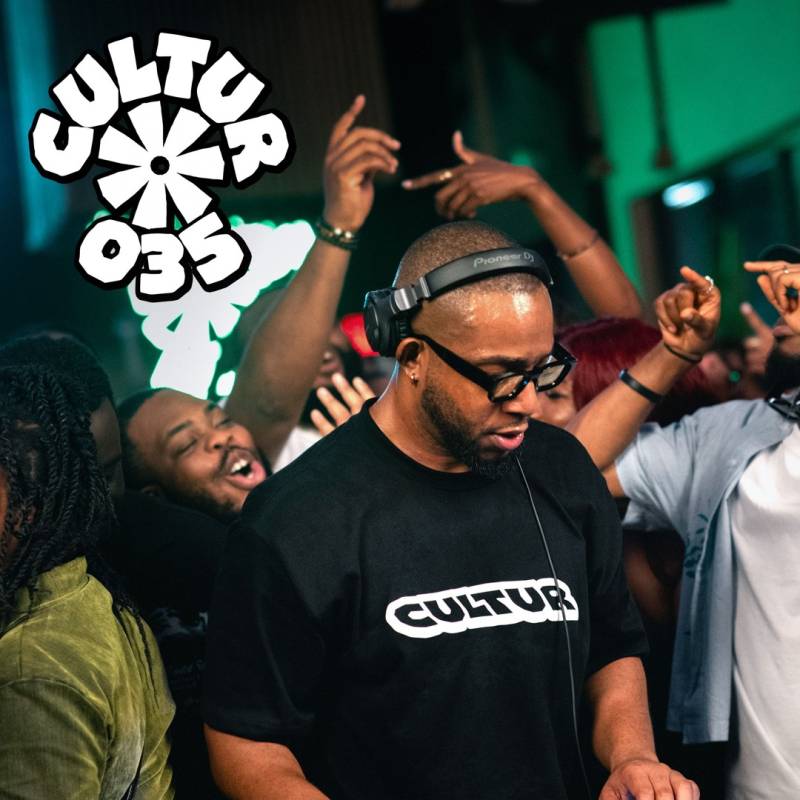In a world increasingly shaped by borrowed ideals and global influence, few artists carry their mission as boldly and authentically as Fuse ODG. Born Nana Richard Abiona, this British-Ghanaian musician has long been more than just a hitmaker. He is a cultural force, using the global stage to confront colonial narratives, reclaim African heritage, and ignite pride among Black youth worldwide. One of his most powerful calls to action in recent times is simple yet deeply profound: Reclaim your African name.
For Fuse ODG, names are not just identifiers — they’re vessels of history, legacy, and spiritual connection. “Your name holds power,” he once said in an interview, “and when you lose it, you lose a piece of yourself.” He’s not wrong. The tradition of naming in African cultures carries spiritual and ancestral significance. Names are chosen not just for sound or beauty, but for meaning — a child’s destiny, the circumstances of their birth, the ancestors watching over them. When African names were replaced with European ones during colonialism and slavery, a profound disconnection began: a people severed from their lineage.
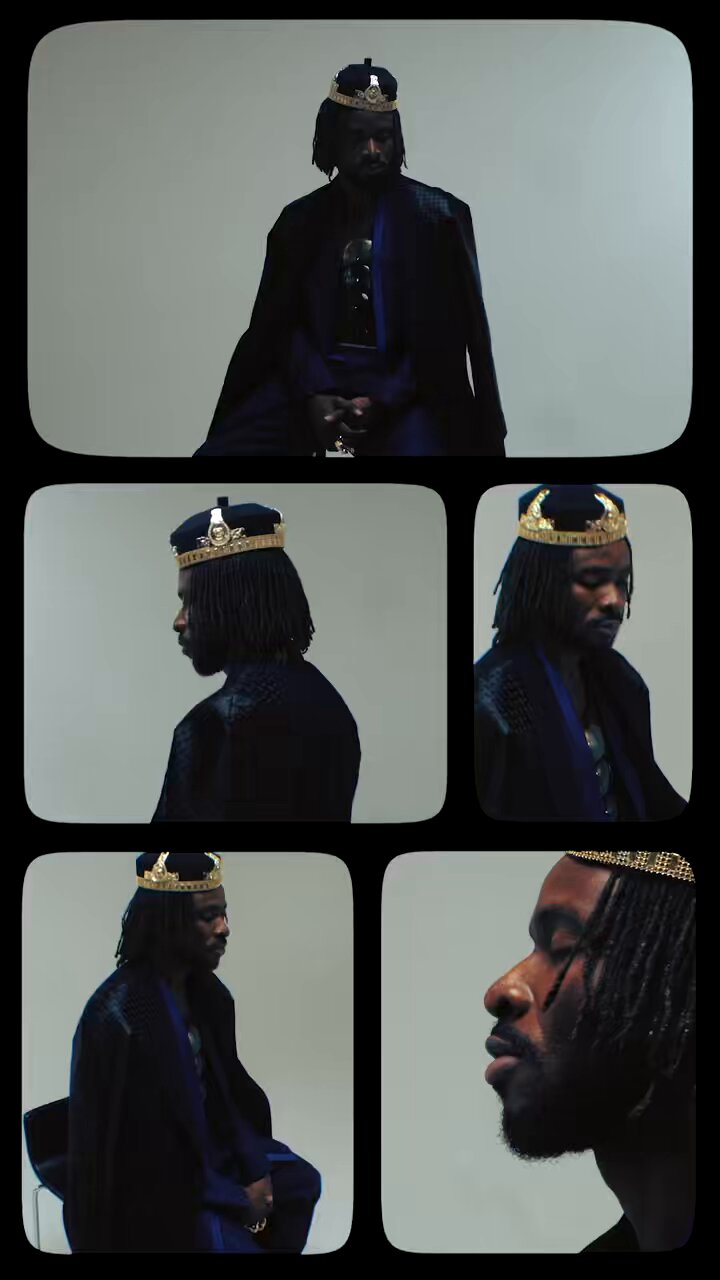
Fuse ODG - the Power of African Identity
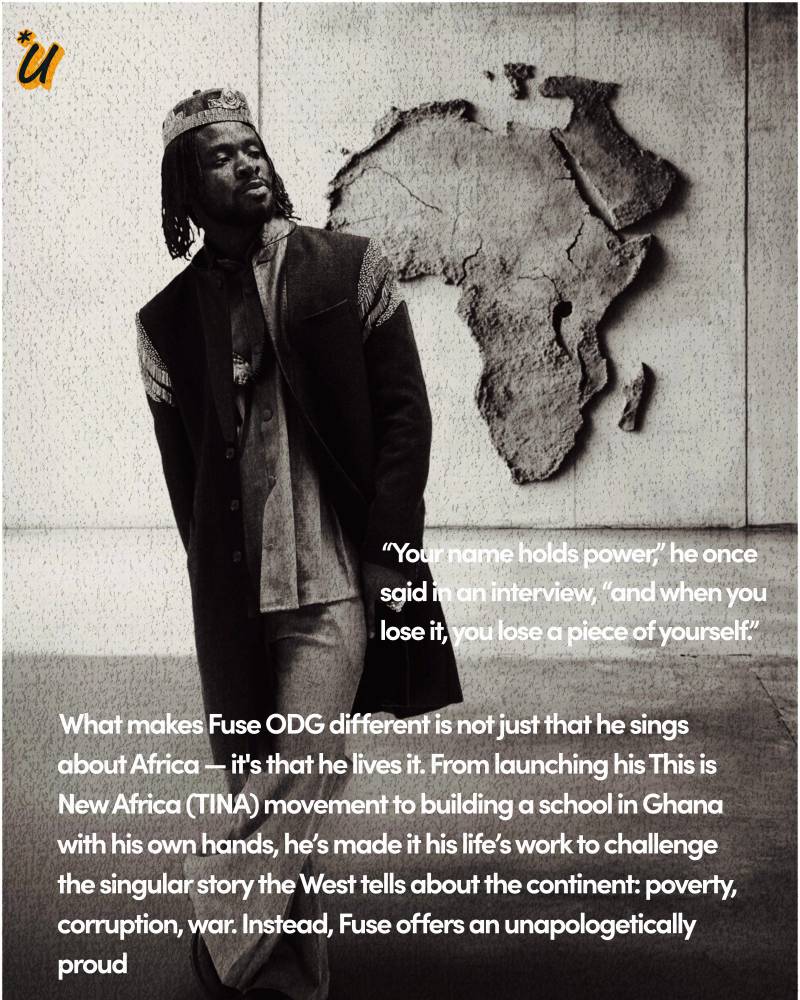
Read Also: Uphorial Sweatshirt

What makes Fuse ODG different is not just that he sings about Africa — it's that he lives it. From launching his This is New Africa (TINA) movement to building a school in Ghana with his own hands, he’s made it his life’s work to challenge the singular story the West tells about the continent: poverty, corruption, war. Instead, Fuse offers an unapologetically proud narrative of beauty, innovation, resilience, and joy. His artistry is steeped in this philosophy. Tracks like Antenna, Million Pound Girl, and Azonto might seem like pure Afrobeats celebration, but at their core lies a strategy — hook the world with the beat, then feed them the message. Behind the infectious rhythms are lyrics that affirm African identity and self-worth. It’s protest music disguised as a party, and that is where Fuse ODG thrives: subversion through celebration.
Reclaiming African names, then, is not just a branding exercise for him. It’s a reclamation of dignity. Fuse himself made the conscious choice to drop “Richard” in favor of “Nana” — a traditional Akan title that denotes royalty. By doing so, he publicly reasserted not just his cultural roots, but the message that you don’t have to shrink yourself to be accepted in a global space. It’s a signal to diasporans and Africans alike that reclaiming your name is reclaiming your truth. Beyond music, Fuse has become a cultural entrepreneur. He launched the Nana Dolls, a line of African dolls with rich backstories that encourage children to embrace their African heritage. He’s invested in schools, fashion collaborations with African designers, and empowerment projects across the continent. This is not someone who dabbles in activism — it’s embedded in his DNA. Each venture extends the same theme: own your identity, rewrite the narrative, and wear your culture with pride.
His advocacy comes at a crucial time when many people in the African diaspora are re-evaluating their roots. Movements like Black Lives Matter and global racial reckoning have led to mass introspection. Why are so many African names absent from resumes? Why do we Anglicize ourselves for comfort or convenience? Why is “foreign” still equated with “better”? These are the uncomfortable truths Fuse ODG’s work brings to light. And while music can sometimes be fleeting, the legacy he’s building isn’t. Every time a child learns to say their name with pride, every time someone corrects a mispronunciation instead of shrinking back, Fuse ODG’s vision comes to life. Reclaiming your African name is a quiet revolution. It won’t trend on TikTok or shake governments overnight, but it chips away at centuries of erasure. In urging us to reclaim our names, Fuse ODG is not just preserving culture — he’s planting seeds for generational transformation. His voice, like his name, is an echo of ancestors who refused to be forgotten — and a call for the rest of us to do the same.
